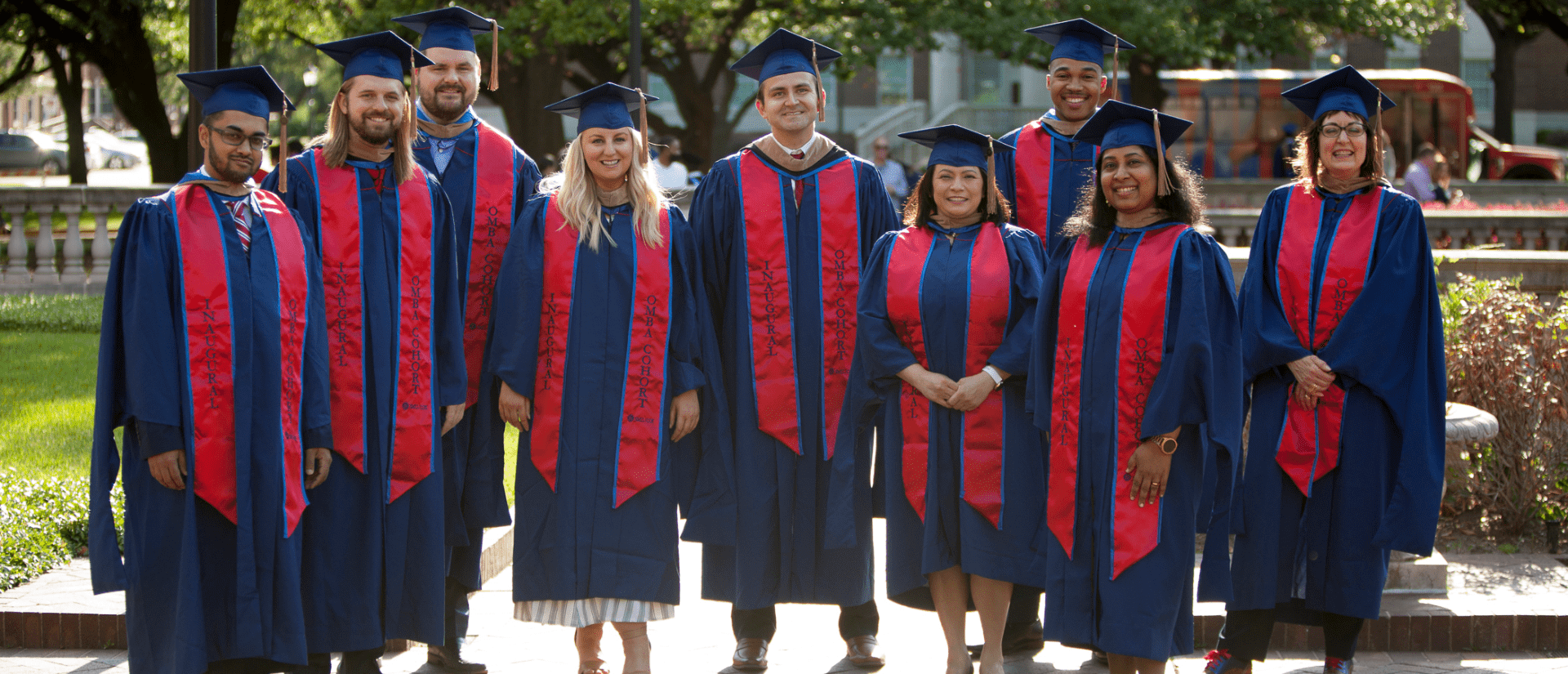In business, change is a constant. Emerging technologies and economic shake-ups continue to transform the way we work, and every month seems to bring new challenges to overcome, new skills to master and new opportunities to thrive. This rate of change will only accelerate in the wake of the COVID-19 pandemic. Business leaders today have to adapt to an economic environment that was unimaginable just months ago. The business leaders of tomorrow have to be ready to adapt to this new environment — and to plan for the changes we can’t yet see coming.
In a constantly shifting world, a graduate program tasked with preparing future leaders must proactively update and refine its curriculum. Cutting-edge instruction depends not only on developing students in the new technical skills that will play an increasingly important role in the world of business but also on teaching the principles — flexibility, intellectual curiosity, critical thinking — that leaders need to make key decisions and to, well, lead.
The SMU Cox School of Business has long recognized the importance of this kind of resilience. And with its new NextGen Cox Curriculum launching this month, the Cox School is ensuring that MBA graduates will be not only job-ready, but future-prepared. As the world continues to evolve and create new hurdles for the business landscape, these graduates will be poised to adapt and lead from the start.
What is NextGen Cox Curriculum?
Keeping flexibility and curiosity in mind, SMU Cox designed the new curriculum to combine data with hands-on experience to present a well-rounded view of successful business practices. Supporting that initiative, MBA students starting classes this fall will follow a curriculum that’s based on three foundational pillars: leadership, analytics and experiential learning.
“We want to ensure that our MBA graduates have technical capabilities, leadership competencies and meta-skills that last a lifetime,” says Shane Goodwin, Cox finance professor and associate dean for executive education and graduate programs. “We’re creating ideas to educate, develop and inspire leaders who make a difference in the world.”
The world is undergoing what Goodwin referred to and others have termed a “Fourth Industrial Revolution,” in which new technologies are reshaping every aspect of our lives. “You’re not only going to have different jobs, you’re going to have different careers,” Goodwin says. “Some of those careers that our graduates will start right out of school are going to vanish, and they’re going to be vanishing a lot more quickly.”
The Cox School’s redesigned MBA curriculum emphasizes analytical rigor. Courses are grounded in the STEM-based (science, technology, engineering, mathematics) applications, giving students the foundation they need to make data-driven decisions. This means teaching students how to combine an understanding of data with the organizational chops required to translate that understanding into action. “It’s never about: Did they know how to do the math?” Goodwin says. “Now, we teach that. But what we also need to do is teach students how to identify and define the problems upfront and conduct evidence-based analysis to inform decision making.”
That same problem-solving is what led to the formation of this new curriculum in the first place.
Leadership Requires Adaptability
Two years ago, SMU Cox senior faculty members and administrators began examining and rethinking the MBA curriculum. The Cox School interviewed its corporate partners across a wide variety of industries and found a consensus among employers: Too many job candidates and MBA graduates lacked the ability to respond to changing priorities, to think critically and solve unstructured or complex problems and to innovate. In other words, they lacked the ability to lead. That’s why, within the new curriculum, SMU Cox is launching new leadership initiatives, increasing the number of required leadership courses and creating the Cox Leadership Academy to focus on developing senior executives for the school’s corporate partners.
Leadership is infamously hard to define, but the Cox School has boiled it town to these qualities: innovation, moral character, purpose, adaptability, critical thinking and tenacity.
To put these principles into practice, experiential learning is baked into the NextGen Cox Curriculum. Take, for example, the Unbridled Venture Project, which requires students to team up and bring a minimally viable product or service to market. After eight months or so, the students will present to real-life venture capitalists partnered with the Cox School and make their pitch for funding. “Instead of Shark Tank, we’ll call it the Mustang Corral,” Goodwin says. Other students may instead work with international companies like Microsoft on real-world projects through the curriculum’s Global Leadership Program.
These kinds of projects require students, from day one, to embrace ambiguity and think independently. In all likelihood, they will also teach students to fail, says Jason Rife, executive director of the Cox Career Management Center and graduate admissions. “If you want to learn to deal with adversity, you have to face it,” he says. “Failure is not terminal. Experiential learning teaches that better than anything else.” It also sets students up for success post-studies.
From Curriculum to Career in a Changing World
The purpose of the MBA curriculum is ultimately to prepare students for the evolving world and their career — and the Cox School helps students embark on their career searches early on. This is where the strong SMU Cox network shines, Rife says. Informed and shaped by employer feedback, the NextGen curriculum ensures that Cox MBAs are strong candidates for the jobs they want. More important, it gives MBA graduates the framework they need for long, flexible careers in a dynamic market and in a world that’s changing more rapidly than ever before.
“We’ve seen a tremendous amount of disruption in the last several months,” Rife says. “There will be some pretty fundamental changes to the way in which global business is conducted, and we need to ensure our students are prepared for that environment.”
To prepare the next generation of business leaders, the Cox School has always kept its finger on the pulse of broader changes in the business world. Constant tweaks and updates to curriculum are necessary. A revamp on the scale of NextGen responds to current trends. But it’s also built to be durable and to prepare students for what’s ahead — whatever that may be. The most dangerous thing a graduate program could do is maintain the status quo. “Graduate business education will absolutely change going forward,” Rife says. “The assumption that we’ll go back to normal is just not realistic.”
The Cox School proved its own agility in the spring as the COVID-19 pandemic swept the country, closing campuses and forcing universities to adapt to online learning. Leaders at the Cox School made organizational changes to streamline decision-making. They took steps to reinforce the school’s values, showing empathy and compassion with the decision to waive some application requirements for graduate school applicants. The school even developed a new online graduate program, called Cox MBA Direct, all part of an imperative to both “act now” and “plan now.”
“What leaders need during a crisis is not a predefined response plan but behaviors, frameworks and mindsets that will prevent them from overreacting to yesterday’s developments and help them look ahead. Even as we anticipate hard choices in the future, we lack the clear view and stable facts needed to inform our careful and comprehensive planning that we experienced in the past. And yet, we must adapt,” Goodwin wrote about the school’s response to COVID-19.
It’s a statement and an idea that could just as well be applied to the school’s new NextGen Cox Curriculum. Graduate programs, like future business leaders, should always prepare for the unprecedented.
Click here to learn more about the SMU Cox School of Business’ curriculum and leadership initiatives, and read more about the new NextGen Cox Curriculum in the fall issue of CoxToday, out in October.














